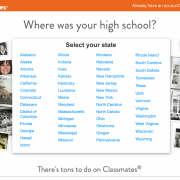San Diego County District Attorney Summer Stephan announced today that two defendants have pleaded guilty connection with the A3 Charter School scheme that siphoned more than $50 million from the State of California. The defendants pleaded guilty in San Diego Superior Court to a variety of felony criminal charges including conspiracy and conflict of interest and are assisting in the return of over $210 million in assets. The defendants’ prison sentences are up to the court and range up to ten years in prison.[TWEET THIS]
Sean McManus, 48, and Jason Schrock, 44, who operated and controlled 19 California charter schools as well as four business entities, were indicted by a grand jury along with nine other defendants in May of 2019 on a several criminal counts.
Today, McManus pleaded guilty to two counts of conspiracy to misappropriate public funds and to stealing more than $500,000. McManus faces up to 10 years in state prison. Schrock pleaded guilty to one count of conspiracy to misappropriate public funds, one felony count of conflict of interest, and also to stealing over $500,000. Schrock faces up to nine years in state prison. McManus, an Australian national, entered his guilty plea remotely from Australia via Microsoft Teams. In his plea agreement McManus agreed to return voluntarily to the United States.
“With these guilty pleas, the defendants now admit they engaged in a devious, systematic public corruption scheme on the backs of students, their parents and the public that diverted millions of taxpayer dollars into their own pockets,” District Attorney Summer Stephan said. “This is one of the largest fraud schemes targeting education dollars for K-12 students in the nation. Unraveling this complex scheme came as a result of over a year of persistent and dedicated work by our team of prosecutors and investigators, who specialized in public corruption. This expert DA team will continue their work on this pending case to seek justice and make victims whole through restitution.”
The timing of the exposure of the potential abuses in the online charter arena has saved the state additional hundreds of millions of dollars even before the pandemic, as the case made school districts and the state aware of oversight concerns.
Sentencing is set June 18 at 9:30 a.m. Three co-defendants, who worked under McManus and Schrock at various charter schools, have already pleaded guilty to criminal conspiracy and have been cooperating with prosecutors under their plea agreements.
As part of the plea agreement the defendants have agreed to transfer significant assets that resulted from their scam, including over $210 million in cash, 13 houses, and various shares in third party companies. The plea agreement will result in many millions of dollars to be used to support education in San Diego County and across California.
“This plea allows for a speedy end to what otherwise could have tied up money belonging to the school system for years,” DA Stephan said. “A critical part of obtaining justice in this case is the ability to recover restitution, which can support students whose needs were was exacerbated by the COVID-19 pandemic. Recovering over $200 million in restitution is one of the largest amounts related to education-targeted fraud in the nation. This was an extremely complicated case and our team from our Special Operations Division continues to do an amazing job holding the defendants accountable and helping school districts change the way they do business.”
The case is the result of a 235-page indictment, which was handed down by a grand jury in May of 2019 following a year-long investigation by members of the San Diego County District Attorney’s Office’s Public Corruption Team, including DA Investigators David Iorillo, Don Holmes and Vincent Giaime, as well as Deputy DA Leon Schorr, who heads the public corruption unit and Deputy DA Kevin Fannan. The grand jury spent six weeks hearing testimony from more than 70 witnesses including employees of the charter schools, parents, athletic coaches, various school district representatives, and county and state-level regulatory employees.
The investigation uncovered a massive scheme in which McManus and Schrock directed subordinates and co-defendants to open 19 charter schools in San Diego County and across California. These are collectively called “A3 Charter Schools” and include:
- Valiant Academy San Diego
- Valiant Academy Los Angeles
- Valiant Academy Santa Barbara
- CA STEAM San Bernardino
- CA STEAM Sonoma
- CA STEAM Sonoma II
- CA STEAM Santa Barbara
- Uplift California Monterey
- Uplift California North
- Uplift California South
- Uplift California Santa Barbara
- California Academy of Sports Science
- California Academy of Sports Science Fresno
- California Vanguard Fresno
- University Prep
- University Prep Fresno
- University Prep San Bernardino
- California Prep Sutter K-7
- California Prep Sutter 8-12
McManus and Schrock knowingly collected public funds from students for “summer school” even though the students were part of pre-existing youth programs such as sports teams, camps, gyms, private schools both religious and secular, and private enrichment centers. McManus and Schrock authorized small payments to these programs for student information (as low as $25 for each student’s identifying information). McManus and Schrock then defrauded the state of California by claiming these students were being served by the A3 Charter Schools and being taught public education from licensed teachers, when the children often had absolutely no relationship with McManus’ and Schrock’s operation.
McManus and Schrock knowingly manipulated state funding procedures to inflate the amount of money the State of California paid the A3 Charter Schools for each summer school student. They backdated documentation and manipulated school calendars to falsely demonstrate that children were engaged in educational activities for the entire summer. The defendants switched students between different A3 Charter Schools, called “sister schools” to increase funding per student/per school beyond legal limits. They also knowingly manipulated invoices paid to themselves through private companies in order for the A3 Charter Schools to defraud the state of California into believing the A3 Charter Schools complied with their Funding Determination approved by the California State Board of Education granting them full funding. The A3 Charter Schools earned as much as $4,000 for each summer school child when the child received relatively nothing in exchange.
McManus and Schrock knowingly evaded oversight by manipulating financial and programmatic information given to auditors. They also avoided oversight by using subordinate figureheads to apply for charter schools and represent themselves to government regulators as the CEO of the schools when McManus and Schrock controlled all decision making and finances.
Once the A3 Charter Schools had public funds from the state, McManus and Schrock transferred millions of dollars to private companies they owned and controlled under the guise of providing educational services to the A3 Charter Schools that were not provided.
This massive fraud case has exposed numerous discrepancies in the way funding is determined for public schools across the state of California, as well as the lack of oversight of schools. These charter schools significantly adjusted their calendars to receive greater “per student” funding than traditional schools. They transferred students frequently, often without the consent of the student, to achieve more Average Daily Attendance (ADA) funding.
As part of the grand jury indictment, school districts like Dehesa were accused of not providing proper oversight, which allowed the charter schools to exist. Part of the landmark impact of this case is that school districts made change to avert fraud in the future through oversight and accountability. After this case came to light, the Dehesa Elementary School District made drastic changes to the way it operates and is becoming a leader on proper charter school oversight.
The District Attorney’s Office worked with the Court to appoint a receiver to manage the A3 Charter Schools and assets controlled by the defendants to preserve them for restitution. The receiver had the difficult task of assessing the viability of the schools and handling sensitive student files and ultimately decided to close the schools in June 2019. The receiver with assistance of the District Attorney’s office also sued six school districts involved in this case from across the state to require them to follow the law and return funds for not providing proper oversight. [TWEET THIS]










